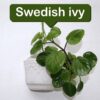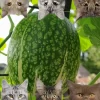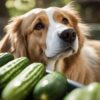Key Takeaways
- Organic gardening is essential for pet safety and overall environmental health.
- Espoma Organic Fertilizer is a pet-safe option that supports a thriving garden without the risks associated with synthetic chemicals.
- Understanding and choosing pet-safe plants can prevent accidental poisoning and ensure your pets enjoy the garden safely.
- Using natural barriers and strategic planting can protect both your pets and your plants.
- Regular application of organic fertilizer, following a seasonal guide, contributes to a healthy garden ecosystem that’s beneficial for pets.

“Espoma Organic 2500-sq ft 7-2-2 …” from www.lowes.com and used with no modifications.
Pet-Safe Gardening Starts Here
When we think about creating a lush garden, the well-being of our pets might not be the first thing that comes to mind. But it should be. As a responsible pet owner, ensuring that your garden is a safe haven for your furry friends is just as important as making it flourish. Going organic is the first step in that direction.
Why Organic Matters for Your Furry Friends
Most importantly, organic gardening eliminates the use of synthetic chemicals that can be harmful to your pets. When they explore, sniff, and sometimes nibble on plants, they’re at risk of ingesting toxic substances. By choosing organic, you’re not only nurturing your plants but also protecting your pets from potential health hazards.
Because pets have a habit of digging and rolling around in the garden, they can easily come into contact with fertilizers. Unlike synthetic options, organic fertilizers like Espoma are made from natural materials that won’t harm your pets even if they come into direct contact with them.
Therefore, it’s crucial to be mindful of the products you use in your garden. A pet-friendly garden is not a luxury; it’s a necessity for pet owners who value the health and happiness of their animal companions.
Espoma Organic Fertilizer at a Glance
Espoma Organic Fertilizer is a popular choice among pet owners for several reasons. It’s especially important for those interested in pet-safe gardening to use products that won’t harm their furry friends.
- It’s made from natural, non-toxic ingredients that are safe for pets.
- The slow-release formula provides continuous nutrition to plants while minimizing the risk of over-fertilization and runoff that can affect local wildlife and water sources.
- It supports soil health, which in turn, creates a more robust garden ecosystem.
By choosing Espoma Organic Fertilizer, you’re opting for a product that aligns with the goal of creating a beautiful, thriving garden that’s also a safe playground for your pets.
Choosing the Right Products for Your Garden
“When selecting fertilizers and plant care products, always look for labels that indicate they are ‘pet-safe,’ ‘natural,’ or ‘organic.’ These products prioritize the health of your pets and the environment.” – Espoma Organic Gardening Experts
Choosing the right products goes beyond just picking any organic label off the shelf. It’s about understanding what each product contains and how it affects the ecosystem of your garden.
Identifying Pet-Safe Ingredients
Here’s what to look for in pet-safe gardening products:
- Natural ingredients like bone meal, seaweed, and composted manure are excellent sources of nutrients for plants and are generally safe for pets.
- Avoid products with added synthetic chemicals or heavy metals, which can be toxic to animals.
- Choose products that have been certified by reputable organizations such as the Organic Materials Review Institute (OMRI).
Being vigilant about the ingredients in your garden products is the best way to ensure that your pets can enjoy the outdoors without any health risks.
Decoding Labels: The Pet-Safe Symbols
Understanding labels is key to selecting the right products. Look for certifications and symbols that indicate a product is organic and safe for pets. This can include:
- The OMRI Listed® seal, which assures the suitability of products for organic gardening.
- The USDA Organic seal, which means the product meets strict government standards for organic production.
- Specific mentions of ‘pet-safe’ or ‘child-safe’ on the packaging.
Remember, a little research goes a long way in protecting your pets and ensuring that your garden is a safe zone for them.
Creating a Pet-Friendly Garden Space
Creating a pet-friendly garden isn’t just about what you plant—it’s also about how you design the space. Pets are curious by nature, and without the proper setup, they could trample your flower beds or even escape the safety of your yard.
Strategic Plant Selection
Choose plants that are non-toxic to pets. Here’s a brief list to get you started:
- Herbs like basil, thyme, and dill.
- Flowers such as sunflowers, zinnias, and petunias.
- Shrubs like hibiscus and butterfly bush.
Avoid plants like lilies, oleander, and sago palm, which can be deadly to pets if ingested.
Barrier Ideas to Keep Pets Safe
Next, consider barriers to protect both your garden and pets:
- Use decorative fencing to delineate garden areas.
- Plant sturdy shrubs along the border of your garden to create a natural barrier.
- Consider raised beds or containers for delicate plants that might attract curious pets.
With these strategies, you can enjoy a beautiful garden that’s harmonious for both you and your pets.
The Role of Espoma Organic Fertilizer
What Makes Espoma Stand Out
When it comes to organic gardening, Espoma Organic Fertilizer is a standout choice for several reasons. First and foremost, their products are crafted with pet safety as a top priority. But it’s not just about being non-toxic; Espoma fertilizers are formulated to nourish plants gently and effectively over time. Their commitment to sustainability and environmental responsibility means that when you use their products, you’re contributing to a healthier planet. This aligns perfectly with the goal of nurturing a thriving garden that’s safe for all family members, including the furry ones.
Application Tips for Best Results
To get the most out of Espoma Organic Fertilizer, follow these tips:
- Always read the instructions on the package carefully before applying.
- Apply during the early morning or late afternoon to avoid the hottest part of the day, which can stress plants.
- Water the soil lightly before and after application to help the fertilizer penetrate the soil and reach the plant roots.
By following these simple steps, you’ll ensure that your garden is not only pet-safe but also positioned for optimal growth and health.
Timing Is Everything
“The key to maximizing the benefits of organic fertilizers lies in the timing of the application. Aligning your fertilizing schedule with the natural growth cycles of your plants will yield the best results.” – Espoma Organic Gardening Experts
Seasonal Guide to Fertilizing
A well-timed fertilizing schedule can make all the difference. Here’s a seasonal guide to help you:
- Spring: This is the time for growth and renewal. Apply Espoma Organic Fertilizer as new growth appears to give your plants a healthy start.
- Summer: Plants are at their peak and may need a mid-season boost. A light application can help sustain their energy during the hottest months.
- Fall: As growth slows, fertilize your garden to help plants store nutrients for the winter.
- Winter: In most climates, fertilizing is not necessary during the winter. However, in warmer zones, a light application can support winter-growing plants.
Adjusting your fertilizing practices according to the season ensures that your garden remains vibrant and your pets remain safe throughout the year.
Understanding Your Plant’s Lifecycle
Every plant has its own lifecycle, and understanding it is crucial for proper fertilization. For example, annuals complete their lifecycle in one season and need a different fertilizing approach compared to perennials, which come back year after year. Research the specific needs of your plants and adjust your fertilizing routine accordingly. This tailored approach not only promotes plant health but also prevents the overuse of fertilizers, keeping your pets and the environment safe.
Gardening Beyond the Green
Maintaining A Sustainable Environment
Besides that, organic gardening is about more than just avoiding chemicals. It’s about creating a sustainable environment that supports all forms of life. By choosing organic fertilizers and practices, you’re helping to maintain the delicate balance of your garden’s ecosystem. This means healthier soil, more beneficial insects, and a more resilient garden that can withstand pests and diseases naturally.
Supporting Pollinators While Protecting Pets
Moreover, a pet-safe garden can also be a haven for pollinators like bees and butterflies. By planting a variety of flowers that bloom at different times of the year, you provide a continuous food source for these essential creatures. And by steering clear of synthetic pesticides and herbicides, you ensure that your garden is a safe place for them to visit. This symbiotic relationship between your plants, pets, and pollinators results in a thriving, vibrant garden.
Mixing Espoma Organics With Other Methods
Companion Planting for a Healthier Garden
Companion planting is an age-old practice that involves placing certain plants together to benefit each other. For instance, marigolds can deter pests naturally, and planting them around your vegetable garden can help keep your produce—and pets—free from harmful insects. Combine this with the use of Espoma Organic Fertilizer, and you’ve got a powerful, natural gardening strategy that’s safe for pets and effective for plants.
DIY Organic Recipes for Gardeners
Embracing organic gardening also means you can get creative with homemade solutions. For instance, a simple mixture of water and mild soap can serve as an effective insect deterrent. Another recipe involves blending garlic and water to create a natural fungicide. For gardeners interested in environmentally friendly fertilizers, here are a couple of easy-to-make concoctions:
- Garlic Spray: Blend two cloves of garlic with a quart of water, let it steep overnight, and then strain. Spray on plants to deter pests.
- Soap Spray: Mix a teaspoon of unscented liquid soap with a quart of water. Spray lightly on plants to combat soft-bodied insects.
These homemade remedies can be just as effective as commercial products, without the worry of exposing your pets to toxic substances. For more information on creating a pet-safe garden, check out plant therapy for pets.
The Long-term Benefits of Organic Gardening
Organic gardening is not just a fleeting trend; it’s an investment in the long-term health of your garden and pets. Over time, organic practices enhance soil structure, reduce erosion, and increase biodiversity. These benefits create a resilient garden that requires less intervention and is less susceptible to large-scale pest or disease outbreaks.
Moreover, as soil health improves, so does the robustness of your plants. Healthier plants are better equipped to resist diseases, reducing the need for any intervention that might pose a risk to your pets. This creates a virtuous cycle where the garden becomes a self-sustaining ecosystem that supports itself with minimal human intervention.
Soil Health Equals Pet Health
It’s simple: the healthier your soil, the healthier your pets. Organic gardening practices avoid the accumulation of toxic chemicals that can leach into the soil and, potentially, into your pets. By maintaining a rich, balanced soil ecosystem through organic methods, you ensure that your pets are playing in—and possibly eating from—a safe, nutritious environment.
Your Checklist for a Sustainable Future
Here’s a quick checklist to keep your garden pet-safe and sustainable: consider drought-tolerant dog-safe plants for a pet-friendly and eco-conscious space.
- Use organic fertilizers like Espoma and avoid synthetic chemicals.
- Choose pet-safe plants and avoid those known to be toxic to animals.
- Employ natural pest control methods and avoid toxic pesticides.
- Regularly check your garden for any plants or substances that could harm your pets.
- Encourage biodiversity by planting a variety of species that support a healthy ecosystem.
By following these steps, you’ll create a garden that’s not only beautiful and productive but also a safe and enjoyable place for your pets.
FAQs
Can Espoma Organic Fertilizer be used for all plants?
Yes, Espoma Organic Fertilizer can be used for a wide range of plants, including vegetables, flowers, trees, and shrubs. It’s designed to provide balanced nutrition that suits the needs of most garden plants.
How often should I apply organic fertilizer?
The frequency of application depends on the specific product and the needs of your plants. Generally, applying organic fertilizer every 4-6 weeks during the growing season is a good rule of thumb. Always follow the instructions on the product label for the best results.
Are there pet-safe pesticides that complement organic fertilizers?
Yes, there are pet-safe pesticides available that work well with organic fertilizers. Look for products that contain natural ingredients like neem oil, diatomaceous earth, or insecticidal soap. These products are effective against pests while being safe for pets when used as directed.
Is organic gardening cost-effective in the long run?
While organic products may have a higher upfront cost, they prove to be cost-effective in the long run. They improve soil health, which can reduce the need for water and additional fertilizers. Healthy plants are also less prone to disease, saving you money on treatments.
What steps should I take if my pet ingests part of a plant?
If you suspect your pet has ingested a toxic plant, contact your veterinarian immediately. Provide them with information about the plant and the amount ingested, if possible. It’s crucial to act quickly in such situations to ensure the safety of your pet. For more information on pet-safe gardening practices, visit pet-safe gardens.
“Remember, the garden is an extension of your home. Treat it with the same care and consideration you would any other part of your living space, especially when it comes to the safety of your beloved pets.” – A Gardening Enthusiast





